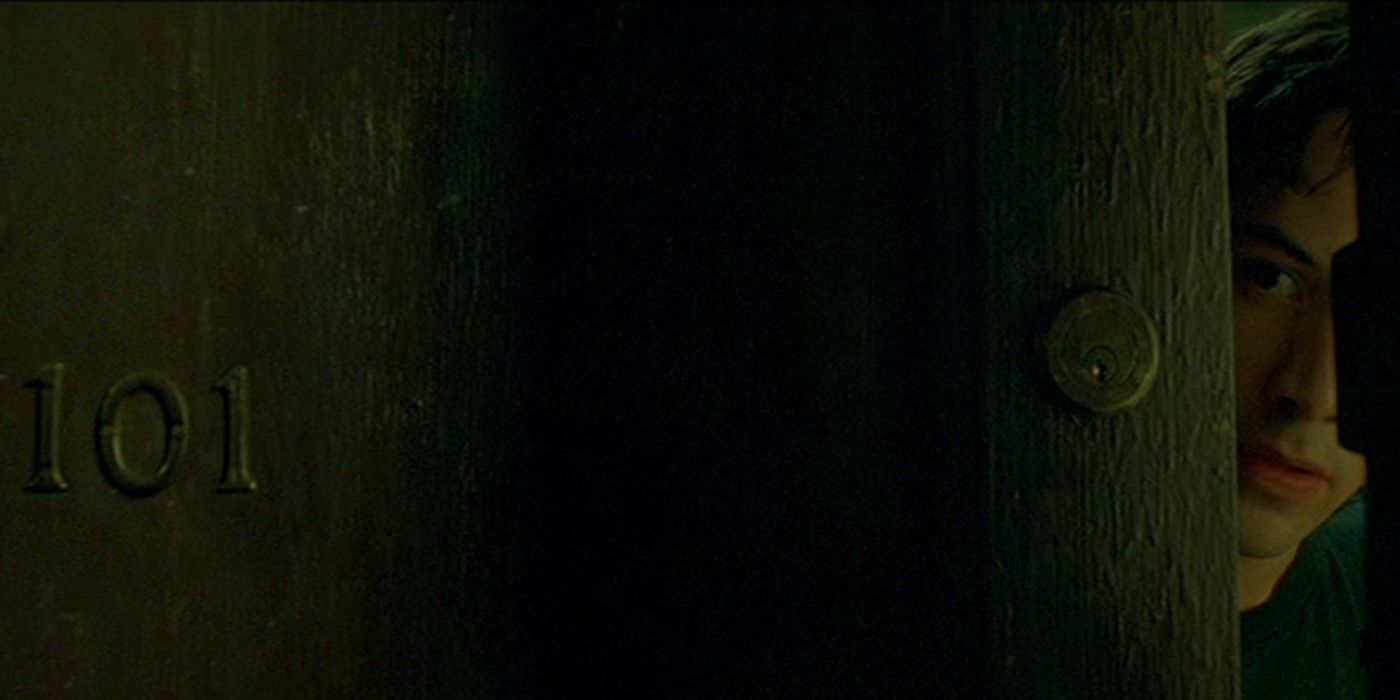1999’s The Matrix is a milestone in dystopian and cyberpunk fiction, which plays with references to classic literature to emphasize its themes and harrowing futuristic setting. As nearly everyone knows, The Matrix follows Keanu Reeves’ Neo after he is freed from the Matrix and joins the war against the machines that have enslaved most of humanity.
However, The Matrix gets far more complicated from there as it tackles questions of free will and dependence upon machinery, which evolves into some forms of coexistence with the machines in The Matrix Revolutions. But decades later, people are still revisiting the seminal first movie to break down Easter eggs and incredibly subtle symbolism.
I will always love the Alice in Wonderland references that frame Neo’s journey of discovering the truth of the Matrix as a maddening one, which is sometimes the feeling evoked by the more confusing later movies. However, arguably the most poignant literary reference in the franchise is the one that connects it to the genre’s history and underlines Neo’s very experience in the Matrix.
Neo’s Apartment Number In The Matrix Is A 1984 Reference
Neo’s Prison Is The Same As Winston’s
When Neo is living his double life as Thomas Anderson at the beginning of The Matrix, he does most of his hacking from a cramped, darkened apartment. When he opens his front door to interact with a buyer, the audience sees that his apartment number is 101, which is a reference to George Orwell’s 1984.
In 1984, Room 101 is the designation of the torture chamber at the Ministry of Love, where the ruling Party uses people’s worst fears to break them and force them to entirely submit to the authoritarian government. The protagonist Winston’s experience in Room 101 leaves him brainwashed and completely devoted to the regime after he is released.
Why Neo Chooses The Red Pill In The Matrix
Neo Chose To Be Free From His Torture
Thus, Neo’s initial home in The Matrix is also his prison, going by the allusion to arguably the most influential piece of writing in the dystopian genre. Early on in The Matrix, it is established that people such as Neo and Trinity (Carrie-Anne Moss) just fundamentally knew something was wrong about their existence, but never quite knew what the Matrix was.
Designating Neo’s apartment with the number 101 suggests that his life in the Matrix is literally torture. It is represented by the monotony of his life in the virtual landscape, dialed up by the sci-fi circumstances of his imprisonment that he can’t perceive. In an otherworldly way, we are supposed to see his life in the Matrix as a constant state of suffering.
It’s a difficult concept to contemplate, and The Matrix admittedly does depict people who are seemingly content within the system, suggesting that Neo and Trinity’s experiences are not universal. But the series is ultimately about Neo and his closest friends breaking free, and for them, this was torture.






